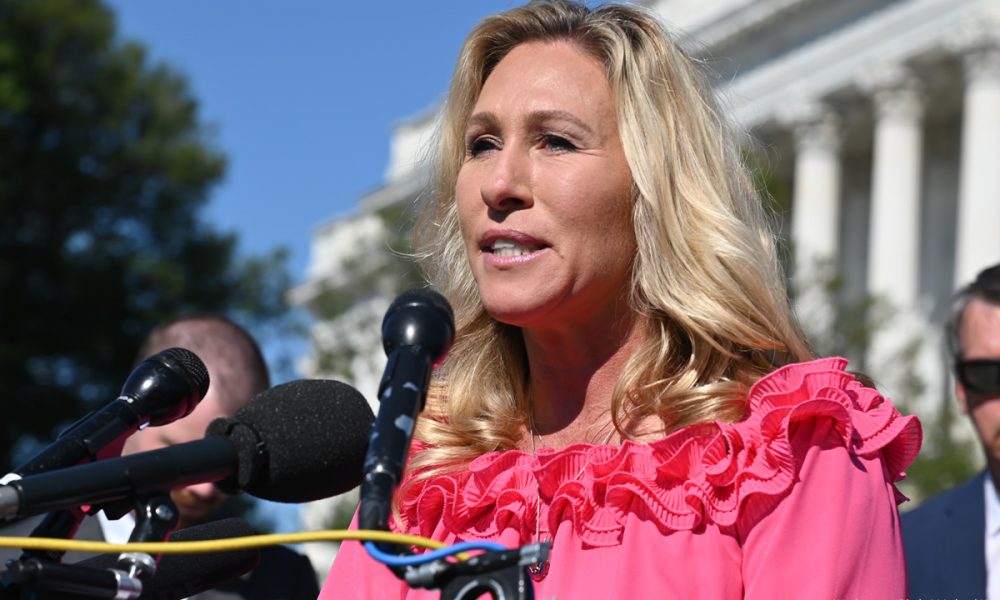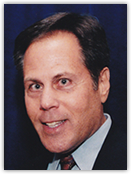WaPo’s disgusting effort to rehabilitate Marjorie Taylor Greene
December 8, 2022 12:00 am
It hit me one morning this fall as I woke up: I’ve turned 70.
As I’ve been celebrating this milestone, I’ve marveled at the changes that have occurred for our LGBTQ community during my lifetime.
Marriage equality, Pete Buttigieg (or any LGBTQ person) running for president and/or the fab queer rom-com “Bros” would have been unimaginable when I began coming out 50 years ago.
Then, just three years after the Stonewall uprising, I and many other LGBTQ folk felt far more shame than pride about our queerness.
Most of us in that era wouldn’t have dreamed that, decades later, not only LGBTQ teens, but queer people our age would have marched, out and proud, in Pride parades. We’d never have thought that in the 21st century any of us would ever proudly say, shout or chant “we’re queer!”
Nothing is more emblematic to me of the progress made in LGBTQ rights from Stonewall to today than the evolution of the word “queer” from a hateful epithet to an expression of pride.
Today, the term “queer” can be found everywhere from news outlets (including NPR, the Blade, the New York Times and the Washington Post) to museum exhibits such as “Queering the Crip, Cripping the Queer” at the Schwules Museum Berlin through the end of January and “Queer Creativity Through the Ages: Artwork from the Center on Colfax Open Art Studio” at the Denver Art Museum through Dec. 31.
I can’t think of any of my under 60 friends, hetero or LGBTQ who don’t use the word “queer.” Sometimes they’re proudly writing it on Pride parade signs. Often, they use it as a neutral adjective. The way you’d say “they’re from Boston” or “he’s about six-feet tall.”
Many of my over-60 pals are beginning to use the word “queer.” If they’re not comfortable using it about themselves, they’re increasingly comfortable with others using it. My 70-something hetero cousins, who are LGBTQ allies, no longer feel I’m putting myself down when I say I’m queer.
Given that “queer” is so often used as an affirmation of identity or neutral descriptor, I was surprised when New York Times columnist Pamela Paul recently lamented the popularity of the “q-word.”
I’m an avid reader of Paul’s column. Paul, a former editor of the New York Times Book Review, is, like many writers, obsessed about language. She’s an astute observer of the culture and of how we use words.
Yet, I can’t help but wonder what Paul was thinking. “Language is always changing – but it shouldn’t become inflexible,” she wrote, “especially when new terminologies, in the name of inclusion, sometimes wind up making others feel excluded.”
Paul, who is hetero, worried that the widespread use of “queer” excludes LGBTQ people who don’t identify as queer. She was upset that so many Gen-Zers identify as queer, and annoyed that “gays and lesbians can feel crowded out” under the LGBTQ umbrella.
Paul chided new Human Rights Campaign president Kelley Robinson for using the word “queer,” and not saying the words “gay,” “lesbian” or “bisexual” in a video where she introduced herself.
People at HRC do say “gay,” “lesbian” “bisexual” “transgender” and “nonbinary,” Robinson wrote in response to Paul’s column in a letter to the Times.
“I identify as a Black queer woman,” Robinson wrote, “and when I say ‘queer,’ it’s to be as inclusive as possible, to re-center those at the margins, to embrace our differences and to embrace our power, too.”
Robinson nailed what attracts so many of us to the word “queer.”
Of course, many LGBTQ boomers and Gen-Xers vividly recall when “queer” was a homophobic slur.
A hetero friend remembers when she was seven riding on a school bus. “I was mad at a kid,” she told me, “I wanted to call him something mean. So I said he was ‘queer.’”
“My sister told me not to say that again,” my pal added, “She said it was too horrible to tell me what it meant.”
But in recent decades (starting with AIDS activists), we’ve reclaimed the word “queer.” We’ve taken away its sting: transformed it from a hate-mongering, othering slur to a source of power.
It’s hard to think of a more inclusive word than queer. It includes and values all LGBTQ folk. In the wake of the Colorado Springs LGBTQ club shooting, it’s more important than ever to be proudly queer.
Kathi Wolfe, a writer and a poet, is a regular contributor to the Blade.
Categorised in: News, Washington Blade
